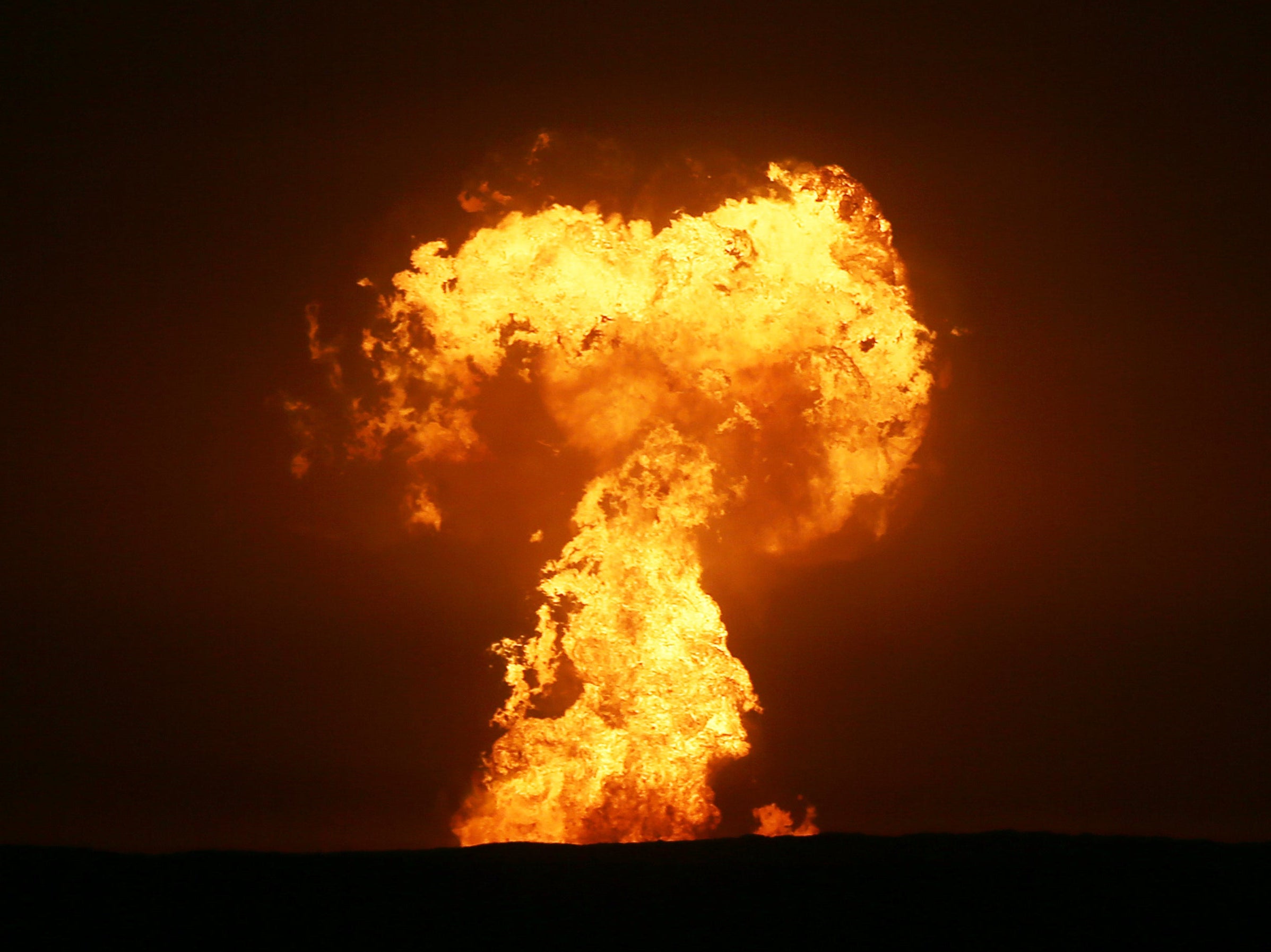A huge explosion has been seen off the coast of Azerbaijan in the Caspian Sea, sending a fireball shooting high into the sky.
The so far unexplained blast took place late on Sunday evening in an area full of oil and gas fields, but Azerbaijan’s state-owned oil company SOCAR said none of its platforms had been damaged.
Instead, a spokesperson for the firm said they believed the explosion was the result of a mud volcano.
Mud volcanoes see water heated deep below the earth’s surface mix with mineral deposits to form a slurry and then be forced upwards through geological faults by subterranean pressure.
There are known to be dozens of these just off the Azerbaijani coast line, and in the past several have ignited local deposits of gas and oil to form spectacular explosions and fires.
Videos of the column of flames shooting into the sky have been posted online, with the explosion clearly visible to locals walking along the promenade in Azerbaijan’s capital Baku.
According to the Azerbaijani news agency APA, SOCAR’s spokesperson Ibrahim Ahmadov said the blast took place about 10km (6 miles) from the Umid gas field, which is 75km (45 miles) off the coast of Baku.
Mark Tingay, an adjunct associate professor at Australia’s University of Adelaide and an expert on mud volcanos, said it was very plausible that the explosion was the result of a mud volcano and that there was one he knew which fit roughly with the location of the blast.
“The mud volcanoes in Azerbaijan are some of the biggest and most violent in the world,” he wrote on Twitter.
“There are, on average, several large mud volcano eruptions each year, and many of them can have big fires.”
Others have speculated the explosion could be linked to oil or gas extraction, possibly taking place on one of dozens of old Soviet-era drilling rigs and platforms which dot the Caspian Sea.
The large oil and gas reserves under Azerbaijan and the Caspian Sea have long seeped to the surface in various places, causing either explosions or steady naturally-igniting fires. This activity is what gives the country its nickname of “Land of Fire”.
Subscribe to Independent Premium to bookmark this article
Want to bookmark your favourite articles and stories to read or reference later? Start your Independent Premium subscription today.


Join our commenting forum
Join thought-provoking conversations, follow other Independent readers and see their replies